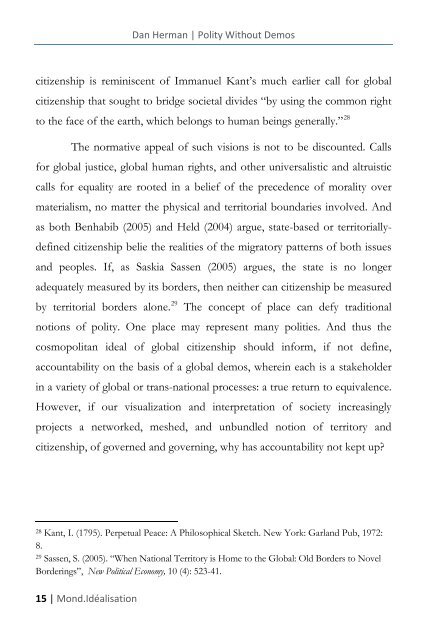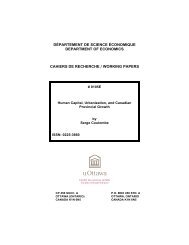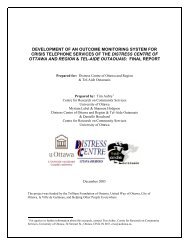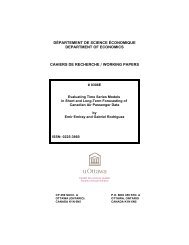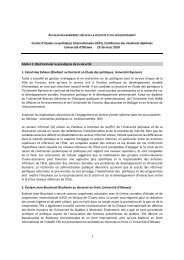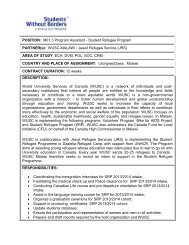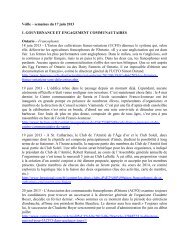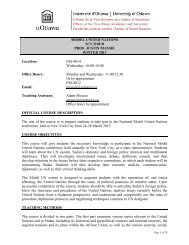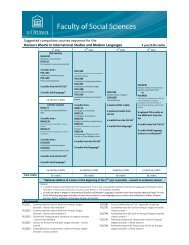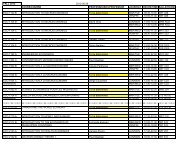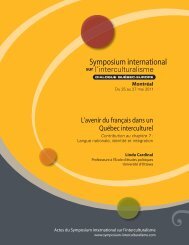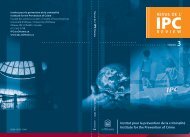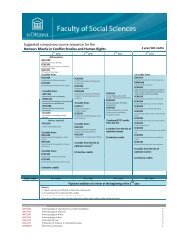GLOB.IDEALIZATION MOND.IDÉALISATION - Faculty of Social ...
GLOB.IDEALIZATION MOND.IDÉALISATION - Faculty of Social ...
GLOB.IDEALIZATION MOND.IDÉALISATION - Faculty of Social ...
You also want an ePaper? Increase the reach of your titles
YUMPU automatically turns print PDFs into web optimized ePapers that Google loves.
15 | Mond.Idéalisation<br />
Dan Herman | Polity Without Demos<br />
citizenship is reminiscent <strong>of</strong> Immanuel Kant’s much earlier call for global<br />
citizenship that sought to bridge societal divides “by using the common right<br />
to the face <strong>of</strong> the earth, which belongs to human beings generally.” 28<br />
The normative appeal <strong>of</strong> such visions is not to be discounted. Calls<br />
for global justice, global human rights, and other universalistic and altruistic<br />
calls for equality are rooted in a belief <strong>of</strong> the precedence <strong>of</strong> morality over<br />
materialism, no matter the physical and territorial boundaries involved. And<br />
as both Benhabib (2005) and Held (2004) argue, state-based or territoriallydefined<br />
citizenship belie the realities <strong>of</strong> the migratory patterns <strong>of</strong> both issues<br />
and peoples. If, as Saskia Sassen (2005) argues, the state is no longer<br />
adequately measured by its borders, then neither can citizenship be measured<br />
29<br />
by territorial borders alone. The concept <strong>of</strong> place can defy traditional<br />
notions <strong>of</strong> polity. One place may represent many polities. And thus the<br />
cosmopolitan ideal <strong>of</strong> global citizenship should inform, if not define,<br />
accountability on the basis <strong>of</strong> a global demos, wherein each is a stakeholder<br />
in a variety <strong>of</strong> global or trans-national processes: a true return to equivalence.<br />
However, if our visualization and interpretation <strong>of</strong> society increasingly<br />
projects a networked, meshed, and unbundled notion <strong>of</strong> territory and<br />
citizenship, <strong>of</strong> governed and governing, why has accountability not kept up?<br />
28 Kant, I. (1795). Perpetual Peace: A Philosophical Sketch. New York: Garland Pub, 1972:<br />
8.<br />
29 Sassen, S. (2005). “When National Territory is Home to the Global: Old Borders to Novel<br />
Borderings”, New Political Economy, 10 (4): 523-41.


